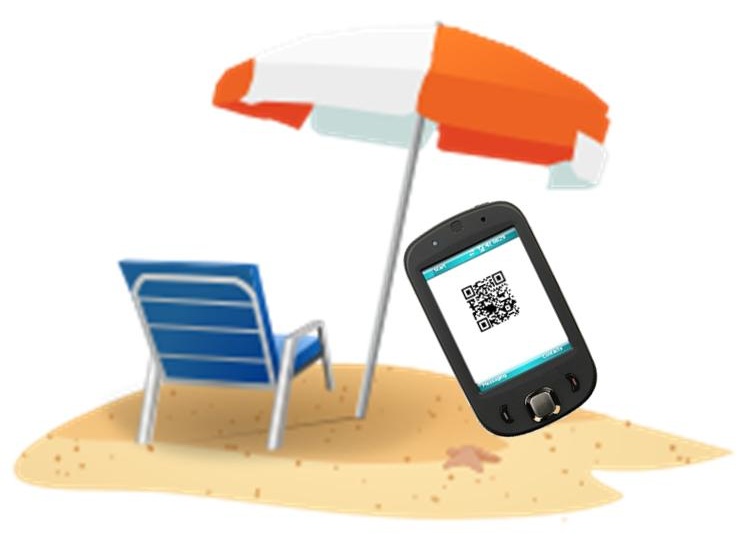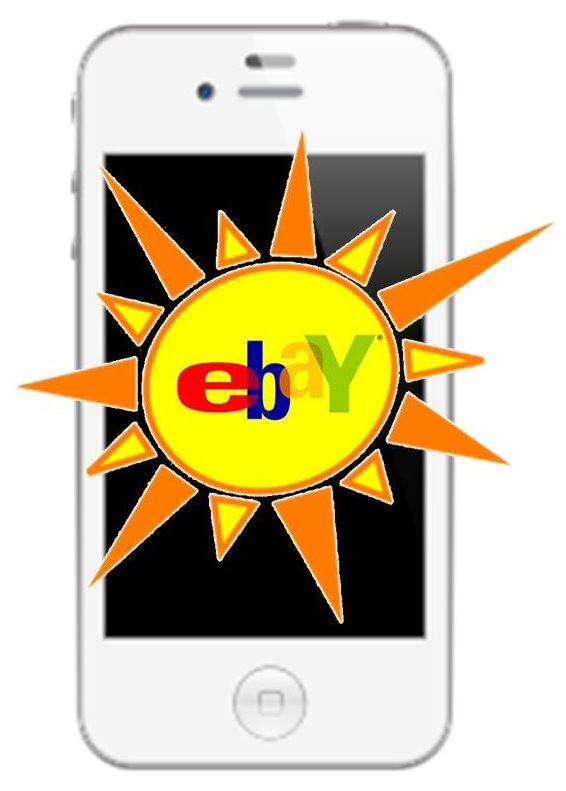
The Sharbot Lake beach in Ontario, Canada will soon become much more smartphone friendly.
QR codes and free WiFi are about to bring a beach on Sharbot Lake into the 21st century, as Central Frontenac Township takes steps to add a more enjoyable and enhanced experience for visitors using high tech methods.
The beach will be only the first recipient of the high tech benefits in the area.
According to Mayor Janet Gutowski, as per a report from the Economic Development Committee, on the meeting of the council in Sharbot Lake, the committee was making the recommendation to use QR codes to help the township to draw attention to its points of interest so that they would be easier for visitors to find.
The QR codes will be scanned by the visitors so that they can learn more about what they can do in the area.
Visitors will be able to use their smartphones in order to scan the QR codes using any free scanner app. This, in combination to the free WiFi that will be available to those visitors, will allow them to instantly access the content that has been created to promote the township and many of the points of interest that visitors might otherwise miss.
According to Gutowsky, the QR codes will also provide smartphone users with other tourist information, such as the suggested starting points for the Sharbot Lake Historical Walking Tour. She pointed out that it is expensive to create and maintain signage, but that the barcodes aren’t, and that they “can be used by all sorts of devices such as smart phones and tablets.”
She also went on to point out that “We’ve been looking for inexpensive ways to highlight our points of interest and thought we’d start with the Sharbot Lake walking tour.” Moreover, she identified a number of other benefits of using the QR codes other than their low associated cost, and that is the quantity of information that they can provide to the scanner.
She said that far more information can be presented through the scans of QR codes than could ever be posted on a sign. Moreover, they are also environmentally friendlier, as they don’t require paper pamphlets that “end up as litter on the side of the road.”

eBay continues to shine the limelight on mobile commerce
For several years, eBay has dominated the e-commerce scene, with only Amazon considered to be its most significant competitor. The online retailer has put a great deal of emphasis in improving the online shopping experience of consumers and has recently begun to embrace more commerce in an aggressive fashion. Indeed, eBay anticipates that mobile commerce will account for a significant portion of its sales in the coming years. This week, CEO John Donahoe outlined plans to take the company in a relatively new direction: Offline commerce.
Retailer aims to blur the lines between physical and digital commerce
Donahoe is eager to bridge the gap between the digital and physical worlds when it comes to commerce. This has been accomplished to some degree by eBay already through the adoption of mobile commerce. Consumers shopping for products from their mobile devices have shown how blurry the lines between physical and digital retail have become. This summer, eBay plans to partner with several retailers in order to make mobile commerce have an even more tangible presence in the real world.
Pop up shops gaining notice
According to Donahoe, eBay will be working to support “pop up” shops this year. The idea behind pop up shops is somewhat simple: A store front that can be located anywhere and sell products online to those using mobile devices. These shops are becoming more popular in the retail industry, especially when it comes to retailers trying to reach out to busy consumers. In 2011, UK retailer Tesco created a pop up shop in South Korea, where QR codes where used to sell products to consumers using public transit. eBay has plans to follow in Tesco’s footsteps to some degree.
New York may soon have new pop up shops
The online retailer will be leveraging the power of QR codes in order to sell products. These codes can be scanned by a mobile device to initiate a mobile transaction. The products are then delivered to a consumer’s home or elsewhere as defined by the customer. PayPal and eBay already have strong ties to several physical retailers and expect that this initiative will be well received. The retailer plans to launch this new initiative this year in New York.



